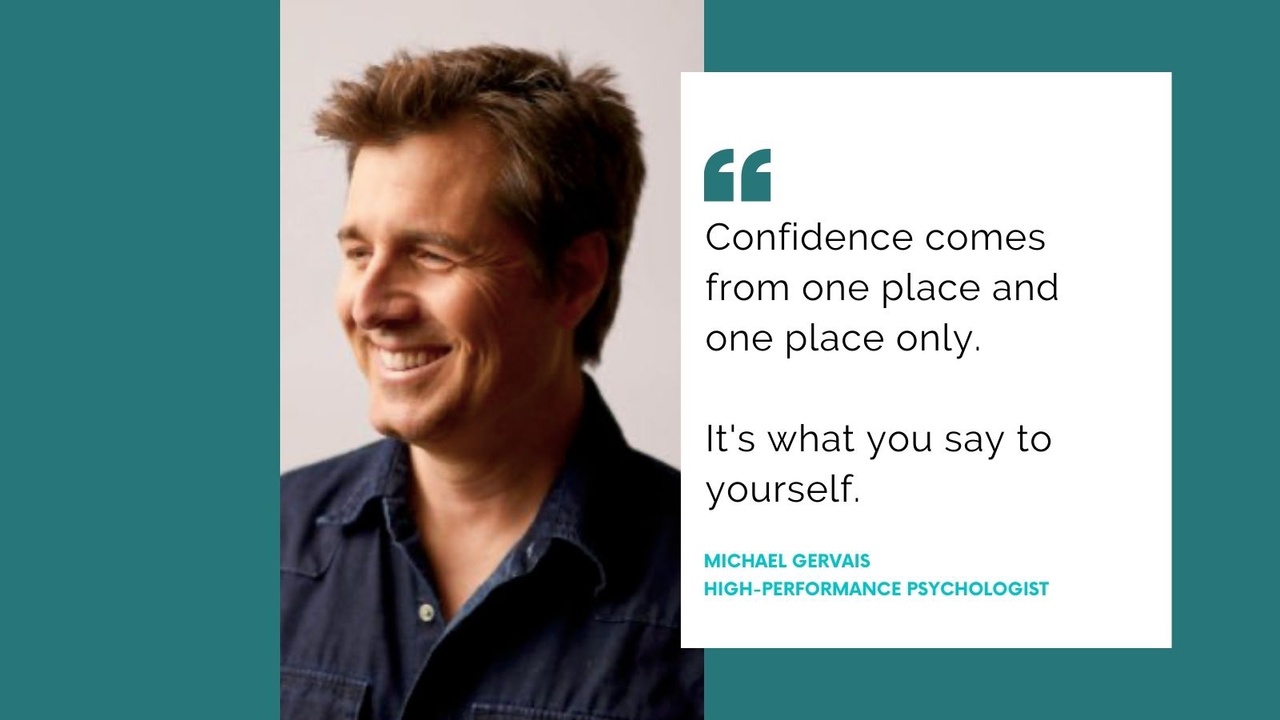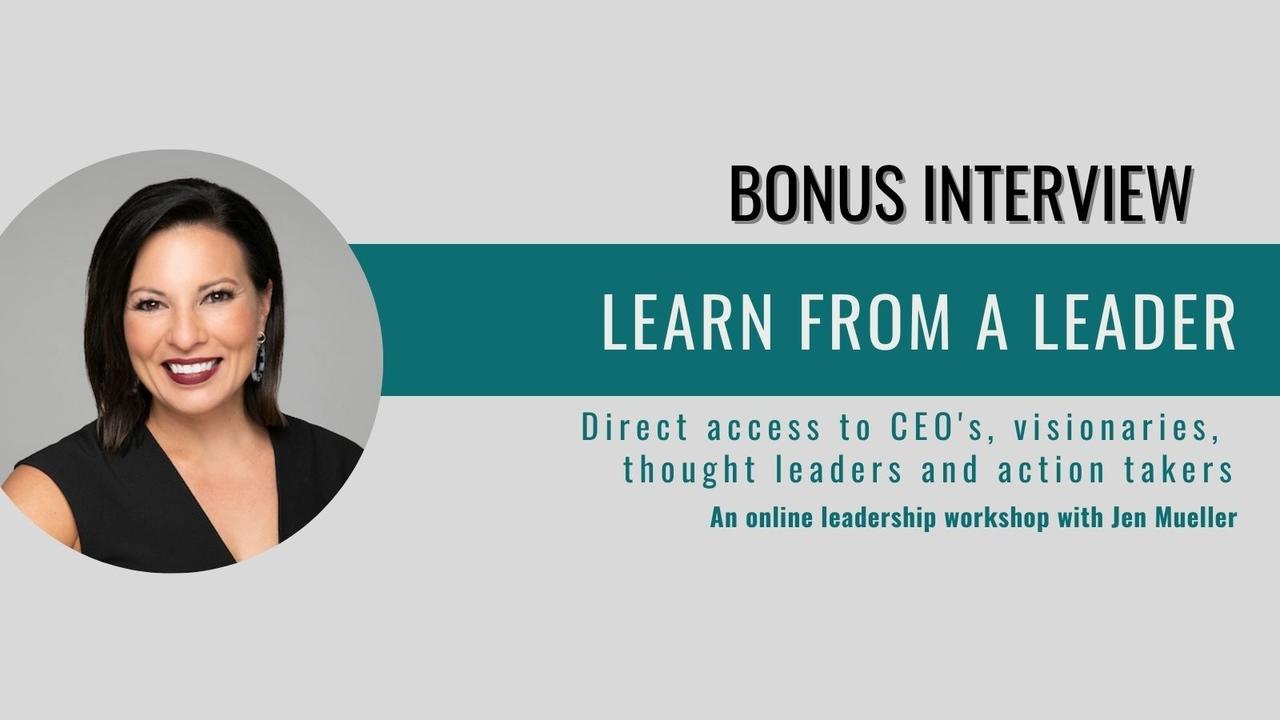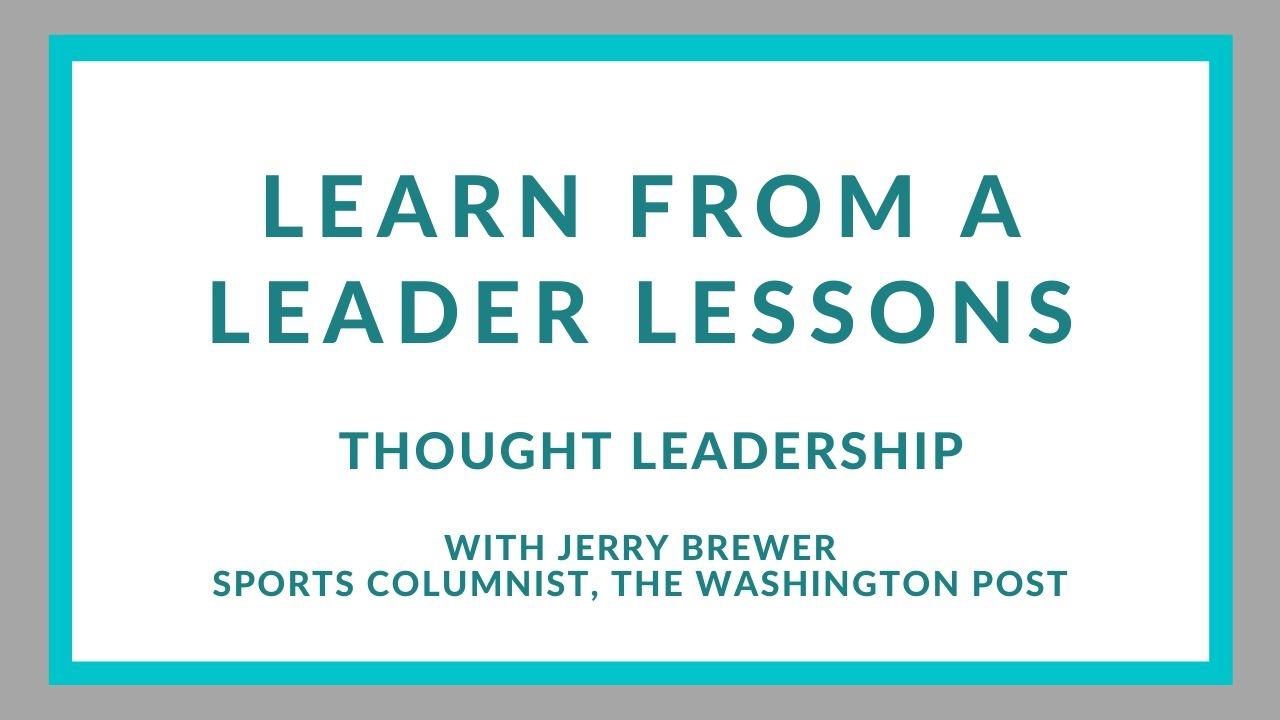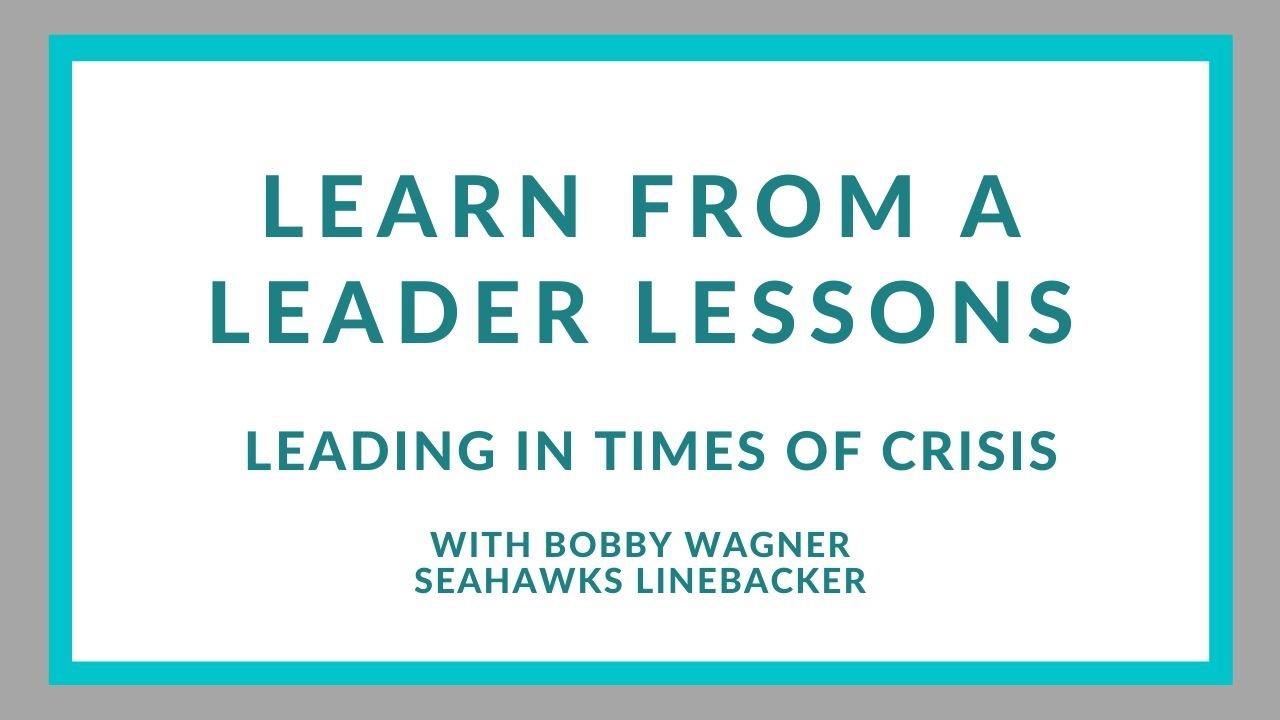I'M ONE TO TALK
Our Blog Posts will help you reach your full potential in becoming a confident conversationalist. New topics each week.
Learn from a Leader: Building Confidence

I never thought of confidence as a skill. I assumed it was something you acquired with age, wisdom and experience. I believed that confidence was something you needed to earn either by virtue of personal accomplishments or because of a status you obtained.
I didn't know how wrong I was about all of those ideas until talking with high-performance psychologist Michael Gervais during a Learn from a Leader interview.
"Confidence comes from one place and one place only. It's what you say to yourself."
Mind blown.
Confidence isn't something that just happens. It's cultivated. It's also a skill leaders need to develop. The confidence you have in yourself directly impacts how you lead others.
Take a look at the short clip from Michael's interview for more perspective. Register for the next Learn from a Leader session to get access to the entire library of interviews.
Learn from a Leader Bonus Interview + Giveaway

It doesn’t matter who I talk to these days NFL athletes, venture capitalists, C-suite executives, my grandma or my best friend, the topic of mental health frequently comes up in conversations. It sounds different for everyone but most often it’s a question like “How are you handling things?”
It highlights the fact that all of us are dealing with feelings of stress, anxiety, loneliness, insecurity and fear. We’re all human.
Years ago I wrote a letter to Lisa Malosky, a sports broadcaster in Houston, professing my admiration for her work and my desire to become a sports broadcaster. I told her that I loved sports and I thought it would be so cool to talk to the athletes themselves. Her hand-written response included these words, “Athletes are people too.”
Twenty years into my sports broadcasting career I know exactly what she meant. I understand the role of empathy in seeing the human side of all people, whether I’m talking to athletes, CEO’s, friends, colleagues or family members.
A...
Learn from a Leader: Communication and Negotiation

Effective communicators and negotiators know their point of view isn't the only one to consider in a conversation.
It's important to communicate your value, message, solution, strategy, etc... but if you haven't considered how that fits with the objective and point of view of the other person(s) in the conversation you're talking, not communicating.
Sports agent Kelli Masters explained how this factors into negotiating contracts for the athletes she represents. You don't need to work in sports for this message to resonate.
If you don't consider or recognize other points of view during a conversation you're less likely to be effective in your communication tactics, as Kelli explains in the video.
Kelli is a trailblazer in sports and she is now an author. Her first book is available for pre-order High-Impact Life: A Sports Agent's Secrets to Finding and Fulfilling a Purpose You Can't Lose. I've already ordered mine!
Learn from a Leader: Sacred Selfishness
Self care is a popular term, but what if you take it a step further and practice "sacred selfishness?" Leaders need to place high value on taking care of themselves so they can lead others.
And according to Jonni Ressler, CEO of Eleven 11 Solutions, it's one of the best habits you can develop as a leader.
Learn from a Leader: Self-Awareness as a Leader with Bobby Wagner
As a keynote speaker my favorite part of any presentation is seeing the "ah-ha" moment. Recognizing when the audience has heard the message in a new or different way. It's exciting and it's gratifying to watch a message land.
As a leader you want to see those moments happen with your team. There's just one thing you should remember, each member of your team is at a different point in their journey. Just because you've had a light bulb moment doesn't mean you can trigger that for someone else if they're not ready.
According to Seahawks linebacker Bobby Wager, it's part of the self-awareness needed to be an effective leader. The short video explains more.
Commit to listening to the people around you, identify where they're at in their journey and then see where you can help and what you can learn.
Learn from a Leader: Leading Interns

Amid the chaos of 2020 it’s time for wine.(And I’m not just talking about the glass I pour for myself at the end of most days.) It’s harvest season.
It will be a long time before the grapes being harvested now are in my glass. It takes time for grapes to become great wine. There’s a process.
Great always takes time. It’s true in wine and it’s true with people. Great success, great understanding, great talent all come after repeated attempts and experiences.
At this point you’re either nodding your head or rolling your eyes, because it’s obvious to you based on where you are in your career.
But what about your interns, or the younger people on your team, the newcomers to the organization or the industry? When talking to those people do you remember the time it takes to be great and the time it took for you to get to where you are in your career?
Leaders help people work through the process of becoming great.
One of the ways to do that is by leading interns. Winemaker Kristin Sche...
Learn from a Leader: Thought Leadership

Thought leadership is more than being seen as an expert. It's a way to drive business. An ongoing study by Edelman and LinkedIn found:
"Companies with the best ability to produce timely, thought-provoking thought leadership content are much more adept than their competitors at capturing their customers’ attention and turning that attention into positive results."
Positive results for a company = sales.
Positive results for you as a leader = influence and power to persuade.
Thought leadership isn't reserved for a select few at the top of a company. Anyone can contribute by being thoughtful, timely and persuasive in their messaging.
It's a lot like being a newspaper columnist. Well written columns are designed to get you to think and persuade you to see a different point of view. Jerry Brewer, sports columnist for The Washington Post does this on a weekly basis. He joined the Learn from a Leader series in July to describe how he approaches thought leadership and what that mean...
Learn from a Leader: Leading in Times of Crisis

What happens if you don't have any answers as a leader?
What happens if there's no playbook that outlines the next right steps?
What do you if you find yourself leading during a crisis?
Many leaders are grappling with those questions right now as they deal with the uncertainty around the coronavirus pandemic. Everything seems to be uncertain. Everyone seems to be making best-guess decisions while filtering through the latest information.
When crisis strikes, leaders lead. It doesn't matter if there's a playbook or if they have the answers. The best thing they can do is understand their response helps shape the reaction of their team.
The response of a leader helps shape the reaction of their team.
It's a lesson Seahawks linebacker Bobby Wagner has learned during his career and one that applies for every leader in times of crisis and uncertainty.
Access the Learn from a Leader Video Library

Leaders never stop learning.
And the best leaders learn from other leaders.
You have the opportunity to do that every single month. Invest in the Learn from a Leader series and you’ll get leadership insights and practical takeaways from a featured leader every month.
- Want to know how Amy Nelson, CEO of The Riveter, raised more than $20 million in venture capital? She walked us through how she gained the confidence and comfort-level to ask for money.
- Curious about best-practices from the Seahawks meeting rooms? Seahawks linebacker K.J. Wright pulled back the curtain.
- Need new ideas on how to brainstorm with a team? Seattle Chocolate CEO Jean Thompson shared the way she does it with her team.
- Struggling with a risk/reward scenario and looking for advice? Former Seahawk and current business owner, Lofa Tatupu provided two questions to evaluate the outcome.
That’s just a handful of the leaders who have taken part in the series. You can access all of the sessions in the Learn...


